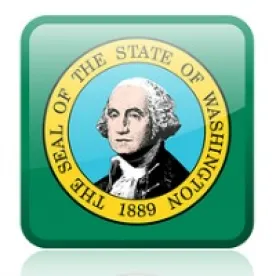On April 26, 2019, the two chambers of the Washington Legislature passed Engrossed Substitute House Bill 1450(“HB 1450” or the “Non-Compete Act”), which regulates non-competition agreements with employees and independent contractors, and severely restricts franchisee no-poach agreements as well as policies against moonlighting. Governor Inslee is expected to sign the Act, which would take effect on January 1, 2020.
Introduction
Under the new law, a non-competition covenant would be void and unenforceable unless it meets the following conditions:
-
If the covenant is entered into at the commencement of employment, it must be disclosed in writing to the employee by no later than the time the employee accepts the offer of employment;
-
If the covenant is entered into at the commencement of employment but will not take effect until a later date due to foreseeable changes in the employee’s compensation, it must specifically disclose that it may be enforceable in the future;
-
If the covenant is entered into after the commencement of employment, it must be supported by additional consideration;
-
The worker’s annual earnings must exceed $100,000 in the case of an employee, or $250,000 in the case of an independent contractor (based upon the income reflected in Box 1 of an employee’s IRS Form W-2 or an independent contractor’s IRS Form 1099);
-
If the employee is laid off, the employer must continue paying “compensation equivalent to” his or her base salary (minus income from subsequent employment) during the period of enforcement; and
-
The covenant must have a post-separation duration of no more than 18 months, unless the employer can show clear and convincing evidence that a longer duration is necessary to protect its business or goodwill.
In addition to the above requirements, the new law includes the following key provisions:
Definition of Non-Competition Covenants
As defined under the law, the term “non-competition covenant” expressly excludes employee and customer non-solicitation covenants, confidentiality/non-disclosure covenants, and covenants relating to the purchase or sale of a business or franchise. To take advantage of these exclusions, employers should separate non-competition covenants from all other provisions, take extra care to narrowly draft the scope of non-competition terms on a case-by-case basis, and make sure to include severability clauses. Employers can also consider other types of agreements, such as those requiring employees to repay training expenses and other expenses if they leave a job before a specified period of time.
Adjustable Earnings Thresholds
The minimum salary thresholds of employees and independent contractors are adjusted each year for inflation. This adjustment may complicate enforcement of non-competition agreements continuing from one year to the next, because agreements that are initially enforceable may become invalid in subsequent years if pay increases do not keep up with inflation. Further, if an agreement becomes enforceable only at a date later than the commencement of employment, the employer must “specifically disclose[] that the agreement may be enforceable against the employee in the future.” This provision allows employers to require employees making less than the salary threshold to sign a non-competition agreement before it actually becomes enforceable.
No-Poach Agreements
In a diversion from non-competes, HB 1450 also bans anti-raiding provisions in vertical franchise agreements. Under Section 7 of the Act, “[n]o franchisor may restrict, restrain, or prohibit in any way a franchisee from soliciting or hiring any employee of” either the franchisor or another franchisee of the same franchisor. This provision furthers a concerted effort by the Washington State Attorney General to put an end to such practice, as addressed in our article dated August 22, 2018.
Moonlighting
In addition to the no-poach ban, the Act also veers away from non-competition covenants to crack down on moonlighting restrictions. Section 8 of the Act provides that an employer may not prohibit an employee earning less than twice the state minimum wage from having another job, unless the prospective moonlighting work raises legitimate concerns regarding safety, scheduling, and/or conflicts of interest.
Choice of Law or Venue Provisions
Under the new law, parties are prohibited from agreeing to litigate non-compete disputes outside of Washington, or from otherwise circumventing “the protections or benefits of” the law. HB 1450 would void any provision that violates that prohibition.
Remedies
Where an employer is alleged to have violated the Non-Compete Act, HB 1450 authorizes the State Attorney General as well as the aggrieved employee to initiate enforcement action. If such enforcement action is successful, the aggrieved employee is entitled to recover the greater of his or her actual damages or a statutory penalty of $5,000.00, plus attorneys’ fees, expenses, and costs. Further, while HB 1450 permits judicial modification or “blue penciling” of an overly broad non-competition covenant, such measures do not absolve the employer of liability for the above-referenced monetary payments.
Retroactive Application
Importantly, the Non-Compete Act applies retroactively to any active non-competition covenants entered into prior to January 1, 2020, subject to two caveats. First, the Non-Compete Act does not apply to any legal proceedings commenced prior to January 1, 2020. Second, “[a] cause of action may not be brought regarding a noncompetition agreement signed prior to the effective date of this section if the noncompetition covenant is not being enforced.”
With sweeping changes to existing state law, the Non-Compete Act will have a significant impact on companies operating in Washington.







 />i
/>i

